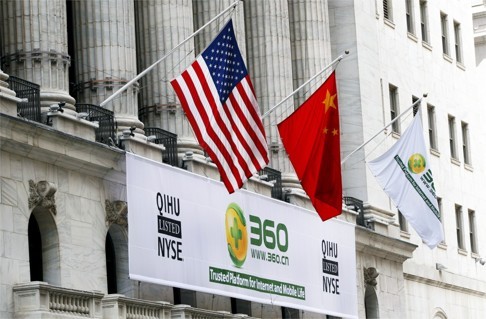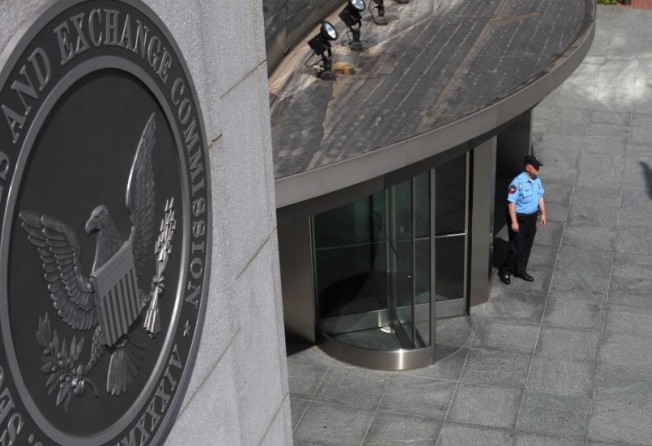
US Securities and Exchange Commission drops insider-trading case against Luo Haijian over Qihoo 360 shares

The US Securities and Exchange Commission has dismissed its complaint against Luo Haijian, the chief executive of Chinese online gaming company 4399, for alleged insider trading involving shares of Qihoo 360 Technology last year.
Gabriel Colwell, Luo’s lead counsel from international law firm Squire Patton Boggs, told the South China Morning Post this week that the SEC agreed to the voluntary dismissal after finding that its complaint was “based upon incomplete information”.
The Post had reported in June about the complaint being filed in a federal court in Manhattan, where the SEC alleged that Luo made a profit of more than US$1 million after trading in a US brokerage account prior to Qihoo’s announcement of a buyout offer that would take the New York-listed company private.
An emergency court order was obtained by the SEC to freeze that brokerage account and all profits from the trades in Qihoo’s shares by Luo, a resident of Guangzhou in southern China’s Guangdong province.
“The suspicious timing and size of Luo’s trades spurred us to move swiftly to freeze his proceeds and ensure that potentially illegal profits cannot be siphoned out of this account beyond a US court’s jurisdiction while our investigation continues,” Andrew Calamari, the regional director of the SEC’s New York office, said in a statement last June.
After being retained by Luo, Squire Patton Boggs moved to expedite the pre-trial process known as discovery. This requires disclosure of information needed for the preparation of the requesting party’s case and that the other party alone has knowledge or possession.
Luo also agreed to give his deposition, which forms part of the discovery process, in Hong Kong.
“Once we were able to provide the SEC staff with all of the relevant facts, including demonstrating that the trades at issue were consistent with Mr Luo’s extensive trading history, the SEC was receptive to our request for dismissal,” Colwell said.
The SEC had earlier charged Luo with violating Section 10(b) of the Securities Exchange Act of 1934 and Rule 10b-5 on the theory that he used material non-public information to purchase US$700,000 worth of “out-of-the-money” call options in Qihoo ahead of the news of that buyout offer.
Once we were able to provide the SEC staff with all of the relevant facts, including demonstrating that the trades at issue were consistent with Mr Luo’s extensive trading history, the SEC was receptive to our request for dismissal
Out of the money means that the share price on the date when Luo purchased the options was lower than the price at which the options could be exercised. He bet that Qihoo’s share price would rise in the short term.
“These short-term, out-of-the-money call options were extremely speculative and represented a very optimistic view of [Qihoo],” the SEC complaint said.
The shares of Beijing-based Qihoo, the biggest internet and mobile security software provider in China, finished up 6.21 per cent to US$70.15 on June 17, its highest close since reaching US$74.33 in November 2014.
Luo sold all of his options after Qihoo’s June 17 announcement and then requested his brokerage firm - the San Francisco office of Credit Suisse Securities - to wire-transfer about US$600,000 of the proceeds from his Qihoo trades to a bank account in Singapore.
On December 18, Qihoo agreed to be acquired by a consortium of investors - led by its chairman and chief executive Zhou Hongyi - in an all-cash transaction valued at US$9.3 billion.
The consortium included Citic Guoan, Golden Brick Silk Road Capital, Sequoia Capital China, Taikang Life Insurance, Ping An Insurance, Sunshine Insurance, New China Capital, Huatai Ruilian and Huasheng Capital.